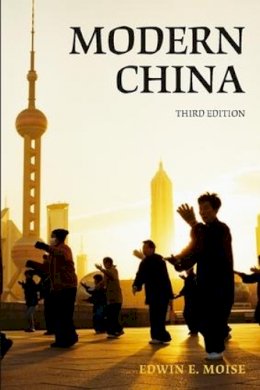
The past hundred years in China have seen almost continuous transformation and upheaval. From Confucianist monarchy to warlordism, from fanatically doctrinaire socialist tyranny to almost doctrineless social-capitalism, China has experienced political, cultural and economic disintegration, reunion, and revolution on an unprecedented scale.
Beginning with the overthrow of the Emperor in 1911, Moise guides us through a century of ever-unfolding drama with characteristic clarity and balance. Examining the effects of the communist revolution, he argues that in the early days Mao Zedong established the most effective government China had ever known, and that even during the bizarre excesses and blood-letting of the Cultural ... Read more
Moving on to the developments since the death of Mao in 1976, in a section fully revised and updated for this new edition, Moise gives a nuanced account of the two sides of China: its spectacularly successful programme of capitalist economic development, and its continuing dictatorship. He contends that dictatorship is now much less total than it was until the mid-70s; although dissenters are still persecuted, their very existence is evidence of a significant loosening of repression. However, there is a heavy price being paid for the Chinese economic miracle. The environmental effects of this boom already stretch well beyond the borders of China.
Modern Chinasends us a clear message: the rapid and fundamental change that has framed the last century has not slowed or stalled but acts as a pointer to the near certainty of significant further change. To understand Chinas future we must understand its past.
Edwin E. Moise is Professor of History at Clemson University, South Carolina and a specialist in the history of China and Vietnam. His previous works include Land Reform in China and North Vietnam(1983) and Tonkin Gulf and the Escalation of the Vietnam War (1996).
Show LessProduct Details
Reviews for Modern China
